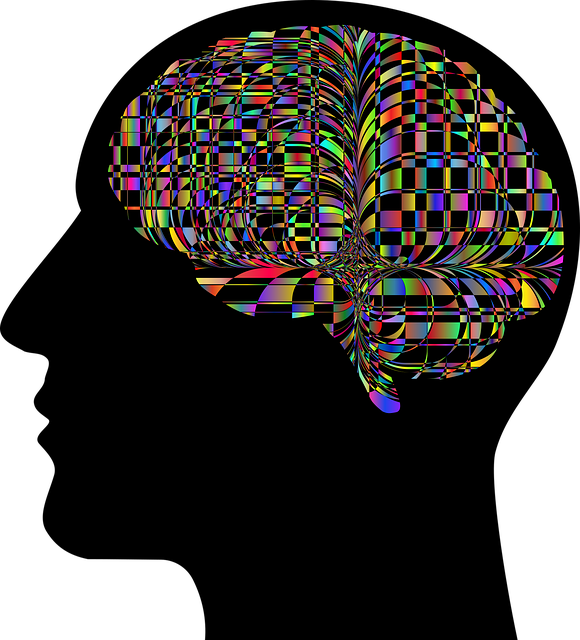Postpartum Depression (PPD) is a common but misunderstood mental health issue affecting new mothers, characterized by intense sadness and anxiety. Recognizing PPD symptoms is crucial for accessing effective treatment like Golden Postpartum Depression Therapy, which includes journaling and conflict resolution techniques. CBT is an evidence-based therapy for GPD, helping mothers challenge negative thought patterns. Cultural sensitivity in therapy is vital, creating safe spaces that respect individual beliefs. Mental wellness coaching programs for new mothers should be tailored, combining CBT with mindfulness meditation and resilience-building exercises. Integrating conflict resolution skills enhances these programs' effectiveness, addressing interpersonal conflicts and trauma. Measuring success involves rigorous assessments tracking improvements in anxiety, depression, stress management, and social functioning. This holistic approach ensures the program's adaptability and effectiveness in combating PPD, offering a "golden" path to recovery.
Mental wellness coaching programs are gaining prominence as essential tools for addressing postpartum depression, particularly the often overlooked ‘Golden’ phase. This article delves into the critical role of therapy in treating this condition, offering a comprehensive guide on designing effective coaching sessions. We explore evidence-based practices and emphasize the importance of assessment and continuous improvement to enhance outcomes. Understanding symptoms and impact is key; thus, we provide insights into postpartum depression’s complexities, ensuring a well-rounded approach to Golden Postpartum Depression Therapy.
- Understanding Postpartum Depression: Symptoms and Impact
- The Role of Therapy in Golden Postpartum Depression Treatment
- Designing Effective Mental Wellness Coaching Programs
- Integrating Evidence-Based Practices into Coaching Sessions
- Measuring Success: Assessment and Continuous Improvement in Coaching
Understanding Postpartum Depression: Symptoms and Impact

Postpartum Depression (PPD) is a common yet often misunderstood condition that can significantly impact new mothers. It’s more than just the ‘baby blues’ many women experience after giving birth; it’s a serious mental health issue with distinct symptoms and far-reaching consequences. The golden period post-delivery, typically expected to be filled with joy and excitement, may instead be marred by intense feelings of sadness, anxiety, and exhaustion. Women struggling with PPD might find themselves overwhelmed, experiencing changes in sleep patterns, appetite, and energy levels, and even having persistent thoughts of worthlessness or guilt.
Recognizing the signs is crucial for seeking Golden Postpartum Depression Therapy and implementing effective recovery strategies. Mental wellness journaling exercises can help mothers track their emotions, while conflict resolution techniques may ease interpersonal tensions often associated with PPD. Additionally, healthcare providers should be aware of burnout prevention strategies to better support new mothers, as their own well-being plays a vital role in offering guidance during this challenging time.
The Role of Therapy in Golden Postpartum Depression Treatment

The treatment of Golden Postpartum Depression (GPD) requires a multifaceted approach, and therapy plays a pivotal role in managing this complex condition. Cognitive Behavioral Therapy (CBT), for instance, is widely recognized as an effective method to address GPD symptoms. CBT helps individuals identify and challenge negative thought patterns and behaviors, promoting healthier ways of coping with stress and anxiety often associated with new motherhood. Through structured sessions, therapists guide mothers in gaining insights into their emotions and providing them with practical tools to enhance self-esteem and resilience.
Cultural sensitivity in mental healthcare practice is essential when treating GPD. Therapists must be adept at creating a safe and non-judgmental space, considering the unique cultural beliefs and experiences of each client. By incorporating culturally relevant techniques, such as mindfulness practices or supporting connections with community resources, therapists can facilitate better engagement and improve outcomes. Additionally, teaching conflict resolution techniques empowers new mothers to navigate challenging relationships, fostering a supportive environment that is crucial for their mental wellness.
Designing Effective Mental Wellness Coaching Programs

Designing effective mental wellness coaching programs requires a nuanced approach that addresses the unique needs of individuals seeking support. It involves creating structured yet flexible frameworks that can be tailored to various populations, including new mothers experiencing postpartum depression, a condition often referred to as Golden Postpartum Depression Therapy. The process begins with assessing the client’s current mental state, understanding their specific challenges, and setting achievable goals. Coaches should incorporate evidence-based techniques such as mindfulness meditation and resilience-building exercises to empower individuals to manage stress and promote emotional well-being.
Emphasizing mind over matter principles, these programs can help clients develop coping mechanisms that foster self-awareness, enhance problem-solving skills, and improve overall mental agility. By combining traditional therapeutic practices with innovative strategies, wellness coaching offers a holistic support system that encourages personal growth and recovery. The goal is to enable individuals to lead fulfilling lives while navigating life’s challenges with resilience and equanimity.
Integrating Evidence-Based Practices into Coaching Sessions

Integrating evidence-based practices into coaching sessions is paramount for effective mental wellness programs. Techniques like cognitive behavioral therapy (CBT), a well-researched method for treating common mental health issues, can equip coaches with powerful tools to support clients. By incorporating CBT elements, coaches can help individuals identify and challenge negative thought patterns, fostering positive thinking and emotional well-being promotion techniques.
Additionally, integrating conflict resolution techniques within coaching sessions proves invaluable. Many mental wellness challenges stem from interpersonal conflicts or unprocessed traumas. Teaching clients constructive ways to navigate these issues enables them to manage stress more effectively. This holistic approach not only tackles immediate concerns but also equips individuals with lifelong skills for navigating life’s challenges, potentially preventing future episodes of postpartum depression therapy.
Measuring Success: Assessment and Continuous Improvement in Coaching

Measuring success in mental wellness coaching programs is a multifaceted process that goes beyond simply tracking client satisfaction. It involves rigorous assessment and continuous improvement strategies to ensure the program’s effectiveness and adaptability. Using evidence-based methods, such as pre-post assessments and structured interviews, coaches can gather valuable data on clients’ well-being improvements, including reduced symptoms of anxiety and depression, enhanced stress management skills, and improved social functioning.
For instance, incorporating tools like standardized questionnaires and qualitative feedback mechanisms allows for a comprehensive understanding of clients’ journeys. By identifying areas of improvement and comparing them with initial assessment results, coaches can tailor their Empathy Building Strategies and Social Skills Training to better address individual needs. This continuous improvement cycle not only enhances the program’s overall quality but also ensures it remains a potent tool in combating issues like postpartum depression, offering clients a golden path towards recovery and improved mental health.
Mental wellness coaching programs have emerged as a valuable tool in addressing the unique challenges of new mothers, particularly those experiencing Golden Postpartum Depression. By integrating evidence-based practices and focusing on personalized support, these programs can significantly improve mental health outcomes. Understanding the symptoms and impact of postpartum depression is crucial, and therapy plays a pivotal role in effective treatment. Through continuous improvement and assessment, coaching sessions can be tailored to meet individual needs, offering a promising approach to fostering resilience and overall well-being for new mothers.








